Alabama’s lone House Democrat Terri Sewell announces leadership run

Now that the U.S. House of Representatives has flipped back to the Democratic Party, Alabama’s lone House Democrat has announced that she will make a run for party leadership. Alabama 7th District U.S. Rep. Terri Sewell on Wednesday announced her bid for Caucus Leadership Representative, a leadership position reserved for Members who have served five terms or less. “As a Southern Democrat who represents the urban and rural heartland, I know that our party needs to engage progressive, moderate, and conservative communities in order to build a winning coalition,” said Sewell. “We need a diversity of voices at the leadership table that reflect both geographical and ideological perspectives.” She continued, “In the next Congress, our Caucus must work with House Democrats from across the political spectrum to craft an agenda that focuses our work on the issues Americans care about most. With input from all of our Members, I believe the Democratic Caucus can win over American voters across the country and across ideologies with our fight for working families.” First elected in 2010, Sewell was re-elected Tuesady to serve her fifth term in the House of Representatives. She currently serves as Vice Chair of the New Democrat Coalition, as a Chief Deputy Whip for the Democratic Caucus, as a Member of the Steering and Policy Committee, and as Co-Chair of the Voting Rights Caucus. The full text of her letter announcing her run to her Democratic colleagues may be found below: November 7, 2018 Dear Democratic Colleagues: After Tuesday’s election-night victory, Democrats have an opportunity for the first time in a decade to refocus Congress on the needs of America’s working families. As the new Democratic majority in the House of Representatives charts a course forward, I am seeking your support for my candidacy for Caucus Leadership Representative, a leadership position reserved for Members who have served five terms or less. As a Democrat from Alabama, I have practical experience working to win over progressive, moderate, and conservative communities where independent and swing voters decide elections. My experience campaigning for Senator Doug Jones in Alabama’s 2017 special election taught me that with the right message, Democrats can win in districts across the country and that American voters prefer bipartisan, commonsense solutions over divisive rhetoric. By staying laser-focused on our fight for better jobs, access to quality and affordable healthcare, and an economy that works for all Americans, I believe Democrats can champion the needs of voters from our rural communities to our bustling cities. This past Congress, I had the honor of serving as a Vice Chair of the New Democrat Coalition, a Chief Deputy Whip for the Democratic Caucus, a Member of the Steering and Policy Committee, and as Co-Chair of the Voting Rights Caucus. Through these roles, I have elevated our fight for healthcare access in rural and underserved communities, made democracy reforms a top national priority, and fought for tax and trade policies that put our working families and workers first. As a Member of the Ways and Means Committee and the House Permanent Select Committee on Intelligence (HPSCI), I have worked to hold President Trump accountable. I have fought for a fairer and more equitable tax code, and a full investigation of Russia’s attack on our democracy. I have worked to secure our elections against future cyberattacks and other threats. I believe the integrity of our elections and the health of our democratic institutions must remain a chief concern, and that in the majority, Democrats will be well positioned not only to conduct necessary oversight but to pass legislation aimed at strengthening our democracy. In order to build an agenda that unifies our Members and works across the country, I believe that our Caucus must work to engage with all House Democrats regardless of where they fall on the political spectrum. As Caucus Leadership Representative, I would reach out to the newest Members of our Caucus and work with our more experienced Members to stay up-to-date on the changing political landscape of districts across the country. With Member input, I believe the Democratic Caucus can win over American voters across the country and across ideologies with our fight for working families. The values I would bring to the Caucus Leadership Representative position are anchored in my upbringing in Selma, Alabama. Growing up in a community where so many foot soldiers fought, bled, and died for our right to vote, I learned at a young age the importance of being civically engaged, speaking out for what’s right, and fighting for our most sacred American values. As the daughter of a librarian and a public-school teacher, my parents taught me what it means to make sure no one gets left behind. Before coming to Congress, I spent over a decade practicing law, and distinguished myself as one of the only black public finance lawyers in the State of Alabama. Those are the values and experiences that shaped my first run for Congress in 2010 and which continue to inform my fight for economic growth, access to healthcare, and a democracy where all voters have a fair voice. As Caucus Leadership Representative, I would bring these values and my experiences in a diverse set of communities to the table. I would be honored to win your support for Caucus Leadership Representative, and I look forward to discussing my candidacy with you over the coming days and weeks. Thank you in advance for your time and consideration. Sincerely, Terri Sewell Member of Congress
Inside the makeover of the Democratic Party
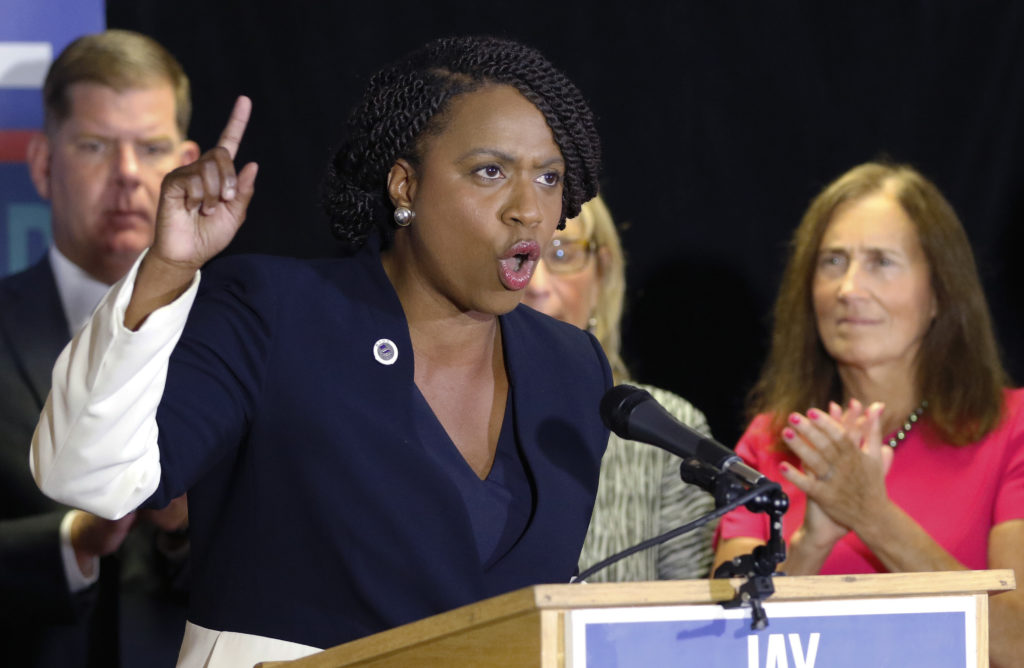
The Democratic makeover is in full swing. With just a few primaries remaining before the decisive midterm elections in November, voters have dramatically reshaped the Democratic Party to become younger, more diverse and unquestionably liberal. The latest turn came Tuesday in Massachusetts, where Boston City Councilor Ayanna Pressley, 44, trounced 10-term congressman Mike Capuano, 66, in a Democratic primary. It reprised a June primary upset in which self-proclaimed democratic socialist Alexandria Ocasio-Cortez, 29, toppled New York congressman Joe Crowley, one of the House Democrats’ top leaders. They join minority candidates like Democratic gubernatorial nominees Stacey Abrams of Georgia and Andrew Gillum of Florida and a host of younger white candidates — including dozens of women and a gaggle of veterans — who are offering voters an antidote to President Donald Trump. “We are at a crossroads,” Pressley declared during a party unity rally Wednesday. “This can be our darkest hour or it can be our finest.” Outsider candidates are taking on establishment-aligned Democratic incumbents in the final primaries of the season over the coming week in states such as Delaware and Rhode Island. Victories by candidates such as Pressley and Ocasio-Cortez have generated substantial grassroots energy. But they’ve also raised questions about whether the party will be able to compete in broad swaths of the country, a potential vulnerability Republicans are eager to exploit. There’s also debate over what a younger, more diverse class of lawmakers might mean for the fate of congressional leaders such as House Democratic leader Nancy Pelosi and potential 2020 presidential candidates who are older and white, including former Vice President Joe Biden. “2020 is going to be about who voters want best to stand up to Trump and to take on Trump,” said Ben Tulchin, who worked as a pollster for Democratic presidential candidate Bernie Sanders in 2016. “You’re going to have to have an authentically progressive message and to be able to communicate that.” For now, Democratic leaders are embracing the enthusiasm of their base — even as it’s unclear where it will lead. “The energy and momentum and the strength is clearly on our side,” said Rep. Ben Ray Lujan of New Mexico, the chairman of the Democratic Congressional Campaign Committee. “There’s nothing more unifying than winning back the House of Representatives and restoring checks and balances.” Democrats’ leftward lurch looks different contest to contest. Capuano and Crowley are reliable liberals, but Pressley and Ocasio-Cortez often go further, with full-throated calls for single-payer government health insurance and abolishing U.S. Immigration and Customs Enforcement, or ICE. Coming from heavily Democratic districts, Pressley and Ocasio-Cortez won’t determine whether Democrats pick up the 23 new seats necessary for a House majority. But they will affect the makeup of the Democratic caucus and what its priorities might be on issues from health care and immigration to potential impeachment proceedings against Trump once a special counsel investigation presents its findings. Elsewhere, Democratic nominees represent a clear shift from the status quo even if they aren’t as left-leaning as Ocasio-Cortez. Congressional nominees like Iowa’s Abby Finkenauer or Arkansas’ Clarke Tucker were the more moderate choices in their respective primaries, but are now trying to topple Republican incumbents with calls for a public option health insurance plan to compete alongside for-profit insurers. Abrams, the Georgia Democrat who’d be the nation’s first black woman elected governor, stops short of single-payer health care and abolishing ICE but promises to expand Medicaid insurance and keep Georgia’s state resources from aiding mass deportation efforts. And dozens of Democratic candidates for federal and state offices — regardless of their positions on ICE, health care or impeachment — have sworn off corporate campaign cash. The embrace of those positions among primary voters has activists on the left looking forward to upcoming primaries in Delaware, where Kerri Evelyn Harris, a black gay woman, is challenging moderate incumbent Democrat Tom Carper on Thursday. In New York, actress Cynthia Nixon will try on Sept. 13 to oust Democratic Gov. Andrew Cuomo. It’s unclear whether any of these outsider candidates will enjoy the same success as Pressley or Ocasio-Cortez. The overall trend has been a wakeup call on Capitol Hill and thrilled leaders of the anti-Trump resistance and the grassroots left. Stefanie Brown James, co-founder of Collective PAC, which supports African-American candidates, praised Pressley as an example of a new assertiveness that goes beyond policy. “I think that for so long, a lot of us who are Democrats have felt like, ‘Dude, where’s the fight back? … Where’s the toughness?’” she said. “You’re seeing candidates who are brash and aggressive and are like, ‘No, we’re not going to wait.’” Crowley, who’d been viewed as a possible future House speaker before his defeat, said Wednesday he was “sad” for Capuano, but celebrated “the engagement and the activity that it’s causing and the fervor that is forming (among) young people, women.” Certainly, there is some political risk in Democrats’ approach, particularly if November draws a typical midterm electorate that is older, whiter and more conservative than presidential-year electorates. “We all know the fight for the majority runs through the suburbs. It doesn’t run through the inner city,” said Republican Rep. Steve Stivers of Ohio, who leads the GOP’s House campaign committee. “It’s the suburbs that matter, and their extreme agenda doesn’t sell.” House Democrats implicitly acknowledge the potential divide, with the DCCC this week launching a series of ads and attacks on health care. Noticeably, they focused mostly on Republican votes that would strip existing protections for policy holders with existing health problems — the ads avoid any mention of single-payer proposals or even a public option. Likewise, Pelosi has begun unveiling her strategy for a Democratic majority. And while it’s focused generally on helping working- and middle-class households, it’s decidedly not the wish list of the grassroots left. Those tensions could come to a head if Pelosi struggles to be elected speaker. Even if she wins, it could be difficult for her to preside over a more liberal caucus. James,
Angry Dems turn against leaders after House election losses
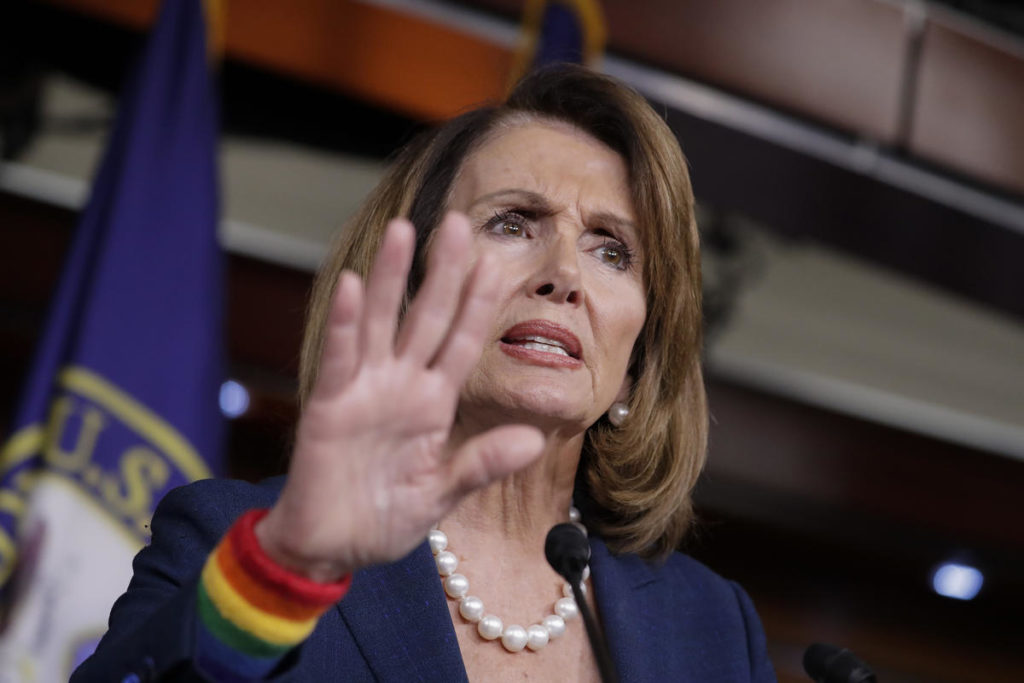
Democratic Party divisions were on glaring display Wednesday as a special election loss in a wildly expensive Georgia House race left bitter lawmakers turning their anger on their own leaders. “We as Democrats have to come to terms with the fact that we lost again,” said Rep. Seth Moulton, D-Mass. “Personally I think it’s time for a new generation of leadership in the party.” The loss in Georgia followed similar disappointments in special House elections in Kansas and Montana, as well as in South Carolina Tuesday night. The Carolina outcome was closer than in Georgia but drew little national attention. In the well-to-do Atlanta suburbs, House Minority Leader Nancy Pelosi of California was the focus of torrents of negative advertising in a House race that cost more than $50 million, the most expensive in history. Republican Karen Handel beat Democrat Jon Ossoff by about 5 percentage points. Although the race was widely viewed as a referendum on President Donald Trump, he was rarely discussed by either candidate, and House Democrats were rattled that the attack ads casting the 77-year-old Pelosi as a San Francisco liberal proved so potent. Some expressed fears about the same tactic being used elsewhere as they aim to take back control of the House in next year’s midterms. Democrats need to pick up 24 House seats to retake the majority. “It makes it a heck of a lot harder,” said Rep. Tim Ryan, D-Ohio, who unsuccessfully challenged Pelosi in a leadership election last fall. “One of the disappointing things from the last couple days is that that approach has a little bit of punch to it, it still moves voters.” Trump’s election as president had papered over the intraparty disputes and generational divides among House Democrats, as lawmakers joined in opposing the White House and trying to channel the energy of their party’s liberal base. But now, after a string of disappointments, those divisions have re-emerged, though Pelosi appears unlikely to face an immediate challenge. Lawmakers are also bemoaning a weak Democratic bench of candidates nationally, and demanding a better strategy for success and a new and stronger economic message that differentiates them more clearly from the Republicans. “If we think we’re going to win these elections because President Trump’s at 35 percent, I think in districts like mine and certainly Georgia and South Carolina, it takes more than that,” said Rep. Tim Walz of Minnesota. “And I’m not sure that that’s there yet. I certainly don’t feel it.” “We need to be focused on next November, and what happens with the reality of health care and trade, tax policies and the impact on working men and women,” said Rep. Debbie Dingell of Michigan. She said she has told Democrats to stop focusing on Russia’s meddling in the 2016 election. Put on defense, House Democratic leaders from Pelosi on down tried to spin the outcome in Georgia as positive, arguing that coming in a close second in the solidly Republican district augured well for their chances of taking back the House next year. “Unfortunately a loss for us, but not good news for them,” Pelosi told the rank-and-file in a closed door meeting Wednesday morning, according to Democrats present. “We gave them a run for their money.” Rep. Ben Ray Lujan of New Mexico, who chairs the Democratic Congressional Campaign Committee that invested millions in the race, argued in a memo to lawmakers, “Despite the loss, we have a lot to be proud of” and “we have a unique opportunity to flip control of the House of Representatives in 2018.” And Rep. Steny Hoyer of Maryland, the No. 2 House Democrat, remarked that “we had no business winning those districts” because of their GOP allegiance. Democratic leaders said there are at least 70 other districts that will be easier terrain for them than the one in Georgia after post-census gerrymandering in GOP-led states created so many heavily Republican districts. In a letter to Democrats late Wednesday, Pelosi insisted majority control of the House is up for grabs. “The president’s numbers are in the thirties and our base is energized,” she wrote. “We must now put forth our message.” Many rank-and-file Democrats were not having it. “We put a lot of resources, a lot of fight, and close is only good in horseshoes,” said Rep. Bill Pascrell, D-N.J. “A loss is a loss is a loss and there’s no excuses.” But prescriptions for how the Democrats should move forward varied. Some on the left argued for a sharper progressive message and more pointed attacks on Republicans and Trump, while Democrats from Midwestern and working-class districts emphasized the importance of an economic message that could appeal to working class voters who were drawn to Trump. One thing most everyone could agree on: Coming in second doesn’t cut it now and wouldn’t be an outcome to celebrate next November. Said Rep. Ed Perlmutter of Colorado: “Closing the gap is great, but it’s not good enough, and we have to do better.” Republished with permission of The Associated Press.
Bernie Sanders kicks off cross-country tour, wants change
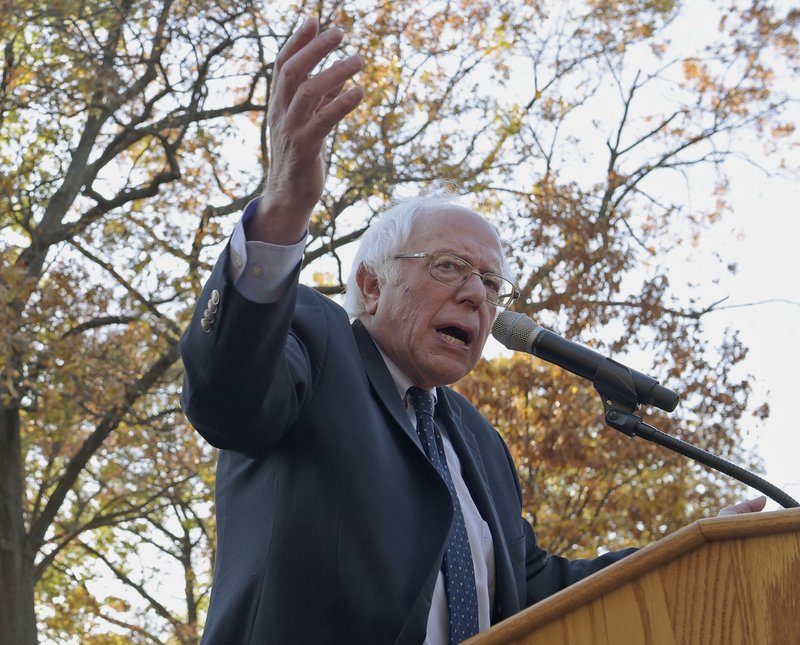
Independent U.S. Sen. Bernie Sanders gained roars of approval from a friendly crowd on Monday as he called for a radical transformation of the Democratic Party into a grassroots movement founded on the tenets of his unsuccessful Democratic presidential campaign: fighting against the billionaire class and rigged economic and political systems. Sanders, of Vermont, and Democratic National Committee Chairman Tom Perez, who faced some boos as he spoke, launched a cross-country tour together in Maine, where Sanders won the Democratic presidential caucuses. The tour will take them from Maine to eight other states, including Florida, Arizona, Montana and Nevada. Sanders, who ran as a Democrat against Hillary Clinton but returned to the Senate as an independent, said the Democratic Party must stop ignoring half the nation’s states and take on corporate greed on behalf of the working class. Perez urged attendees to resist Republican President Donald Trump by winning seats in Congress, statehouses and school boards. “That’s what we will do: Fight like hell with you,” Perez said. A crowd of roughly 1,200 filled the State Theatre, with the loudest cheers for Sanders and jeers at mentions of the “1 percent” and Trump’s executive orders and proposed budget cuts. “Our vision for the future of this country is a very different vision than yours,” Sanders said, as he called for living wages, protecting Planned Parenthood and fighting income inequality. He also said he’s introducing legislation to create a single-payer health care system. Some in the crowd also booed at the first mention of the Democratic National Committee. Perez’s predecessor, Debbie Wasserman Schultz, resigned after Sanders’ campaign pounced on leaked emails that they said showed party officials had favored Clinton during the primaries. Some attendees said it’s time to unite and reform the Democratic Party, while others said they’re skeptical of the political establishment and big money in politics. Sean Potter, a Sanders supporter and musician from Falmouth, said he was curious to hear from Sanders, whom he noted “kind of got shafted by” the Democratic Party. Sander’s appearance comes as Democratic parties nationwide are trying to appeal to the working class in states including Maine, where a resurgent Republican Party in the last decade has gained ground in rural communities roiled by the closing of paper mills and sluggish economic growth. Sanders drew thousands to a rally at the civic center in Portland in July 2015, showing he was more than a fringe candidate. In the end, he earned nearly two-thirds of the ballots cast in Maine’s Democratic presidential caucuses to beat Clinton. Clinton, though, won the party’s presidential nomination. Sanders also did well in rural areas that supported Republican candidate Ted Cruz, a U.S. senator from Texas, in the primary and Trump in the November election. Troy Jackson, a logger from the northern Maine town of Allagash and the Maine Democratic Senate leader, said it’s time that Democrats to work harder for those communities. “Where I’m from, people live their lives far removed from the powerful elites that seem to hold their destinies in their hands,” he said. Jackson also said he’s “heard from a lot of pundits that the average American feels powerless.” “We know it’s rigged,” he said. Elissa Moore drove two hours to the rally from Dover-Foxcroft, where she voted for Clinton but has remained a “big fan” of Sanders. She’s increasingly become involved with politics since Trump’s inauguration and worries that gay, lesbian, bisexual and transgender people will suffer under his administration. “Republicans picked up on something, whether it was racism or small-town America not feeling respected or understood,” said Moore, a mother and occupational therapist. “Democrats have the reputation of being elitist. That offended people when they went to vote.” Trump has denounced racism and has promised to “make America great again.” Republished with permission of The Associated Press.
Sen. Elizabeth Warren to seek re-election, repeats vow to fight Donald Trump
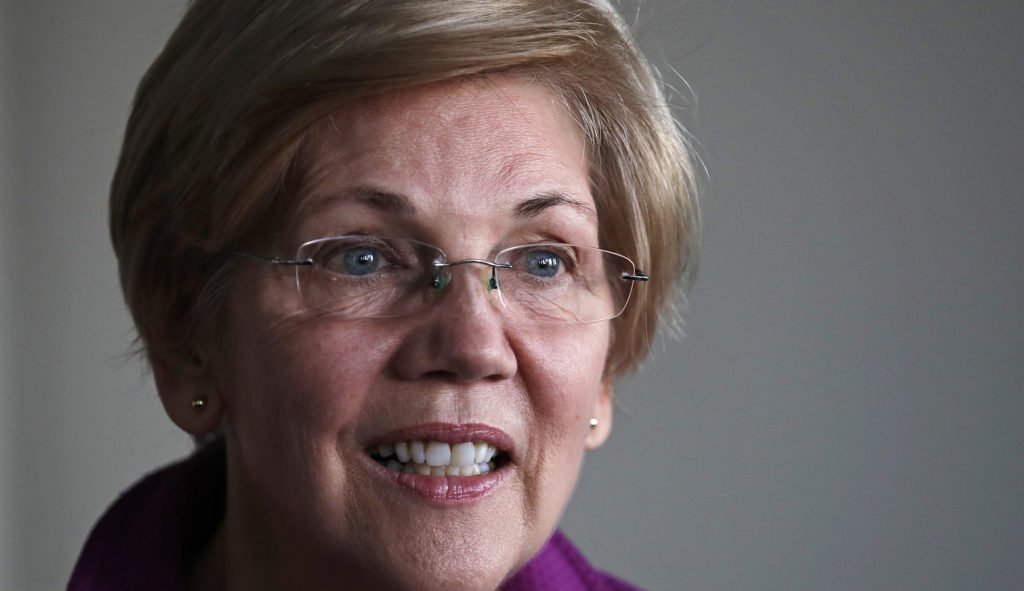
Democratic U.S. Sen. Elizabeth Warren said Friday she will run for a second term in 2018, signaling again that she plans to be one of her party’s fiercest critics of Donald Trump and the Republican-led Congress. Warren made the announcement – which had been expected – in a message to supporters. “This isn’t the fight we were expecting to fight,” Warren wrote. “But this is the fight that’s in front of us. And the people of Massachusetts didn’t send me to Washington to roll over and play dead while Donald Trump and his team of billionaires, bigots and Wall Street bankers crush the working people of our Commonwealth and this country.” Warren, a former Harvard Law School professor, won the Senate seat in 2012 by beating incumbent Republican Sen. Scott Brown in her first political contest. Potential GOP opponents in 2018 include former Boston Red Sox pitching star Curt Schilling, a strong Trump backer. Warren said she expected both the upcoming fights in the Senate over the next two years and her re-election campaign to be “uglier and nastier than anything we’ve ever imagined,” adding she would take nothing for granted. Massachusetts Republican Party chairwoman Kirsten Hughes suggested Warren was starting her campaign early because she had a lot of work to do. “Her record has exposed her as a hyperpartisan bully more interested in scoring political points than delivering actual results, and Massachusetts has little to gain by sending her back to Washington,” Hughes said. Warren was among Democrats vetted by Hillary Clinton for the party’s vice presidential nomination, which went to Virginia Sen. Tim Kaine. Warren has also figured in very early speculation about the 2020 presidential race. In a recent interview with The Associated Press, Warren did not rule out a future White House run but added that it wasn’t something she was thinking about at the moment. She was recently named to the Senate Armed Services Committee, a high-profile assignment that could enhance her foreign policy credentials. Warren appealed to supporters to make small donations to the campaign and volunteer to knock on doors or make phone calls on her behalf. “We cannot and will not allow the Republicans and the powerful interests to sink our campaign the same way they sank so many campaigns in 2016,” she wrote. Warren reported more than $4.1 million in her campaign account as of Sept. 30, according to Federal Election Commission records, and she said previously her political action committee helped raise more than $5 million for Democratic candidates last year. Warren assailed Trump during the 2016 campaign, calling him “fraudster-in-chief,” among other things. Trump responded via Twitter, labeling her “goofy Elizabeth Warren” and referring to her as “Pocahontas,” a reference to Warren’s claim to have Native American ancestry. Republish with permission of The Associated Press.
As Barack Obama accomplished policy goals, his party floundered
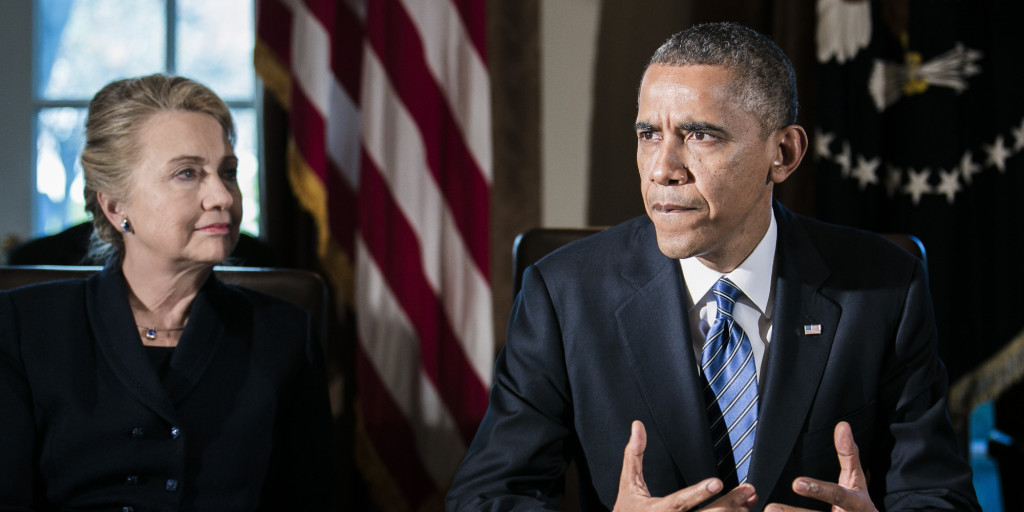
In boasting about his tenure in the White House, President Barack Obama often cites numbers like these: 15 million new jobs, a 4.9 percent unemployment rate and 74 months of consecutive job growth. There’s one number you will almost never hear: More than 1,030 seats. That’s the number of spots in state legislatures, governor’s mansions and Congress lost by Democrats during Obama’s presidency. It’s a statistic that reveals an unexpected twist of the Obama years: The leadership of the one-time community organizer and champion of ground-up politics was rough on the grassroots of his own party. When Obama exits the White House, he’ll leave behind a Democratic Party that languished in his shadow for years and is searching for itself. “What’s happened on the ground is that voters have been punishing Democrats for eight solid years – it’s been exhausting,” said South Carolina state Sen. Vincent Sheheen, who lost two gubernatorial campaigns to Nikki Haley, President-elect Donald Trump‘s pick for ambassador to the U.N. “If I was talking about a local or state issue, voters would always lapse back into a national topic: Barack Obama.” When Obama won the presidency, his election was heralded as a moment of Democratic dominance – the crashing of a conservative wave that had swept the country since the dawn of the Reagan era. Democrats believed that the coalition of young, minority and female voters who swept Obama into the White House would usher in something new: an ascendant Democratic majority that would ensure party gains for decades to come. The coalition, it turns out, was Obama’s alone. After this year’s elections, Democrats hold the governor’s office and both legislative chambers in just five coastal states: Oregon, California, Connecticut, Rhode Island and Delaware. Republicans have the trifecta in 25, giving them control of a broad swath of the middle of the country. The defeats have all but wiped out a generation of young Democrats, leaving the party with limited power in statehouses and a thin bench to challenge an ascendant GOP majority eager to undo many of the president’s policies. To be sure, the president’s party almost always loses seats in midterm elections. But, say experts, Obama’s tenure has marked the greatest number of losses under any president in decades. “Obama just figured his important actions on policies like immigration and health care would solidify support, but that hasn’t really materialized,” said Daniel Galvin, a political science professor at Northwestern University and the author of a book on presidential party building. “He’s done basically the minimal amount of party building, and it’s been insufficient to help the party.” It’s a political reality that Obama has only been willing to acknowledge publicly after his party’s devastating November losses. He’s admitted he failed to create “a sustaining organization” around the political force that twice elected him to office. “That’s something I would have liked to have done more of, but it’s kind of hard to do when you’re also dealing with a whole bunch of issues here in the White House,” he said at his year-end press conference. It is perhaps not surprising that Obama – a politician who promised a post-party era – turned out not to be a party stalwart. Obama and his aides came into office neither beholden to his party’s establishment, nor particularly interested in reinforcing his party’s weak spots. He electrified the 2004 Democratic National Convention with a speech seeking common cause over party differences. Four years later, he defeated Hillary Clinton, the pick of the party insiders, to win the Democratic presidential nomination. In the White House, Obama’s failure to do the typical Washington schmoozing was a constant source of complaint among congressional Democrats, as was his reluctance to endorse down-ballot candidates and inability to parlay Organizing for Action, his grassroots organization, into a significant force. State parties languished and the Democratic National Committee struggled with dysfunction and debt. “We built this beautiful house, but the foundation is rotten,” said South Carolina Democratic Chairman Jaime Harrison, a candidate to lead the Democratic National Committee. “In hindsight we should have looked at this and said, ‘Maybe the state parties should be strong.’” Toward the end of his presidency, Obama began doing more, stepping in to assist more than 150 state legislative candidates in October and campaigning across the country for Clinton. He’s indicated he intends to make partisan politics a bigger piece of his post-presidential life. Aides say Obama will be closely involved in an effort to focus on drawing district lines more in the favor of Democrats. The president’s advisers blame the losses on such structural trends. They point to a flood of Republican super PAC dollars and a resurgence of Republican political power in statehouses. That state-level dominance has given Republicans the ability to redraw district lines and created voting rules that could benefit their party for years to come. The refusal by many Democrats to accept help from Obama in the 2010 and 2014 midterms was also a strategic mistake, they argue. “Frankly, when people have asked, the president has been more than willing to engage,” said David Simas, Obama’s political director. Some Democrats blame Obama for an executive agenda that highlighted social issues – such as transgender rights and access to birth control – over the economic anxiety still felt by many voters. “The backlash to the Obama presidency was perhaps bigger than any of us really realized,” said Simon Rosenberg, president of the New Democratic Network, a Democratic think tank. “A lot of the story of this election was people feeling like the culture was evolving in a way that made it feel like they were no longer living in the country they grew up in.” Others are focusing on the one clear truth of the November defeats: What worked for Obama just did not work for this party. Perhaps the most remarkable twist of a shocking political season? Even as voters chose to elect a successor who vows to undo most of Obama’s legacy, his
Democratic oppo file on Jeff Sessions leaked months ago, WikiLeaks says
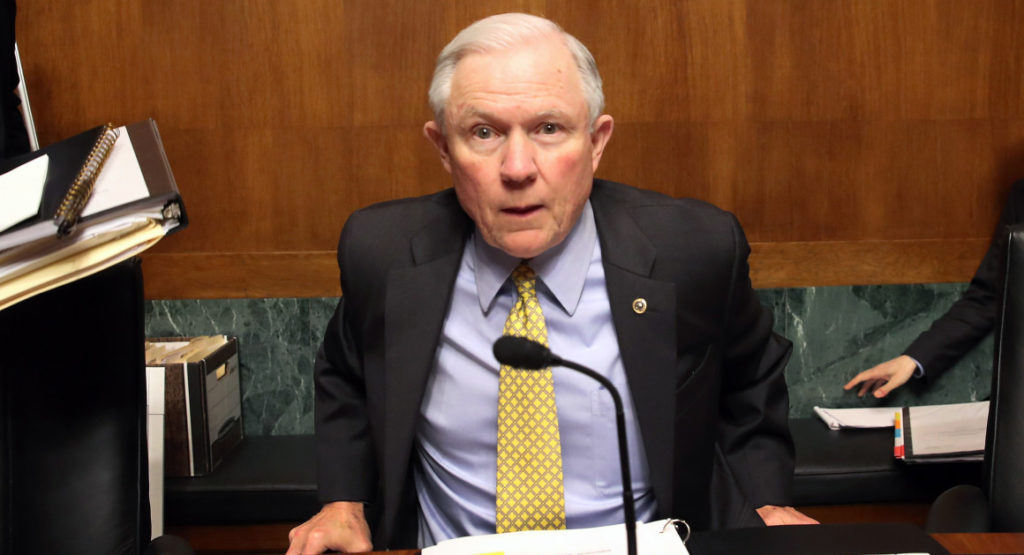
Democrats’ strategy to stonewall Alabama Sen. Jeff Session’s appointment to Donald Trump’s cabinet has been laid out for months, according to emails published by whistleblower site WikiLeaks. In May, an email between two Democratic Party staffers outlined the party’s “top hits” for Trump’s potential VP picks, including Sessions and fellow Sens. Bob Corker and Joni Ernst. None of those three “tier 1” politicians ended up being Trump’s running mate, though Sessions’ has been picked for Attorney General by the incoming administration. The staffer warns that Sessions’ document “contains the N-word,” previewing one of the lines of attack the party has used against the 20-year Senate veteran during the lead up to his confirmation hearings. Attached to the email are two documents combining to 85 pages cataloging Sessions’ comments on everything from foreign policy and the proposed Muslim ban, to women and racism. The “top hits” are split up into sections detailing why Sessions is “bad for Latinos,” “bad for African-American,” and “bad for women,” among many other groups. Given the contents of the document, Sessions’ confirmation hearings can be expected to include questions about the constitutionality of some of Trump’s comments, whether Sessions’ will enforce the Supreme Court’s ruling on same-sex marriage, and how he will treat states’ rights in regards to things such as marijuana legalization.
Terri Sewell elected Vice-Chair of the New Democrat Coalition
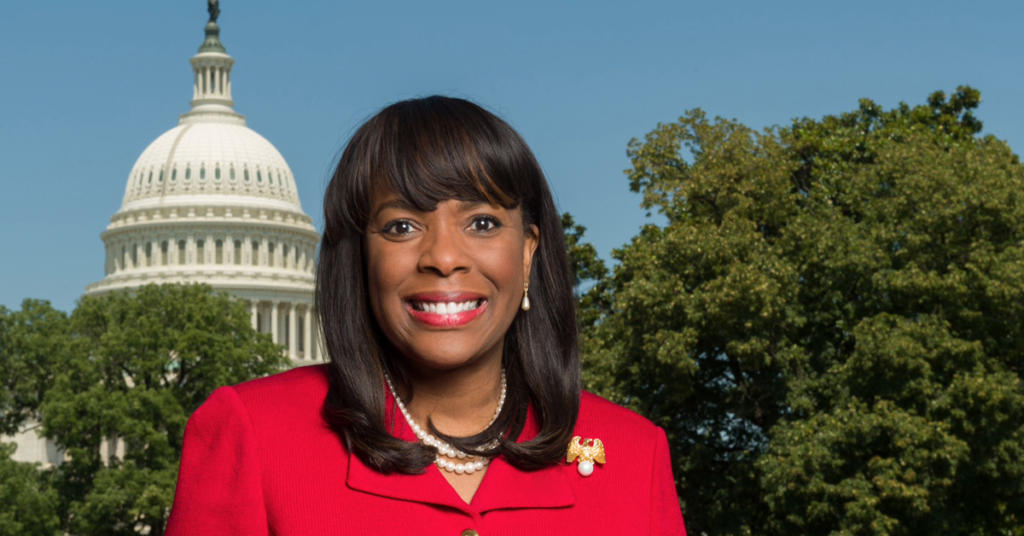
Rep. Terri Sewell on Thursday was elected by her colleagues to serve as Vice Chair of the New Democrat Coalition in the 115th Congress. In her new role, Alabama’s 7th District. U.S. Congresswoman will be responsible for a specific portfolio, as well as assisting Chair-Elect Rep. Jim Himes with leadership efforts and helping develop specific policy positions to be adopted by the Coalition. “I am beyond grateful to my colleagues for electing me to serve as Vice-Chair of the New Democrat Coalition in the 115th Congress,” said Sewell. “My decision to join the New Democrats when I came to Congress stemmed from the profound relevancy our Coalition has on the health and economic welfare of my constituents in the 7th Congressional District of Alabama. This includes policies that encourage job creation, promote innovation, and provide workers with the necessary tools to compete and thrive in today’s economy.” Dedicated to maintaining America’s standing as the world’s strongest, most successful nation, the New Democrat Coalition was founded in 1997. The New Dems believe in the power of American ingenuity and innovation, and are focused on finding ways to foster and harness this creativity to grow America’s economy, create new American jobs, and ensure a safer and more secure future for our country. “America continues to benefit from the leadership of the New Democrat Coalition and the Democratic values of opportunity, fairness, and responsibility,” Sewell continued. “I look forward to the work that lies ahead as I promote the needs of my constituents before the Coalition and advance the pro-growth agenda of the New Democrat Coalition to all Americans.” The Coalition elected Rep. Jim Himes (CT-04) to serve as Chair. Reps. Jared Polis (CO-02), Derek Kilmer (WA-06), and Suzan DelBene (WA-01) were elected to serve as Vice-Chairs alongside Rep. Sewell. Rep. Ron Kind (WI-03) will serve as Chairman Emeritus of the Coalition. “It’s been a pleasure to lead New Dems over the last four years. The New Democrat Coalition has always been full of talent, and I’m excited to see some of our newer Members take the reins,” said outgoing Chair Ron Kind. “Under Rep. Sewell’s leadership, I am confident the New Dems will continue to be strong advocates for policies that grow the economy, increase innovation, and help hard-working Americans.” “I’m thrilled to have the opportunity to work in this coming Congress with Terri Sewell as Vice-Chair in the New Democrat Coalition,” added Chair-Elect Jim Himes. “Terri represents the leadership, innovation and commitment to her constituents and the American people that are emblematic of the New Dems. Working together, we can overcome challenges, move our country forward and shape policy over the coming Congress.”
Reckoning for Nancy Pelosi as House Democrats vote for leader
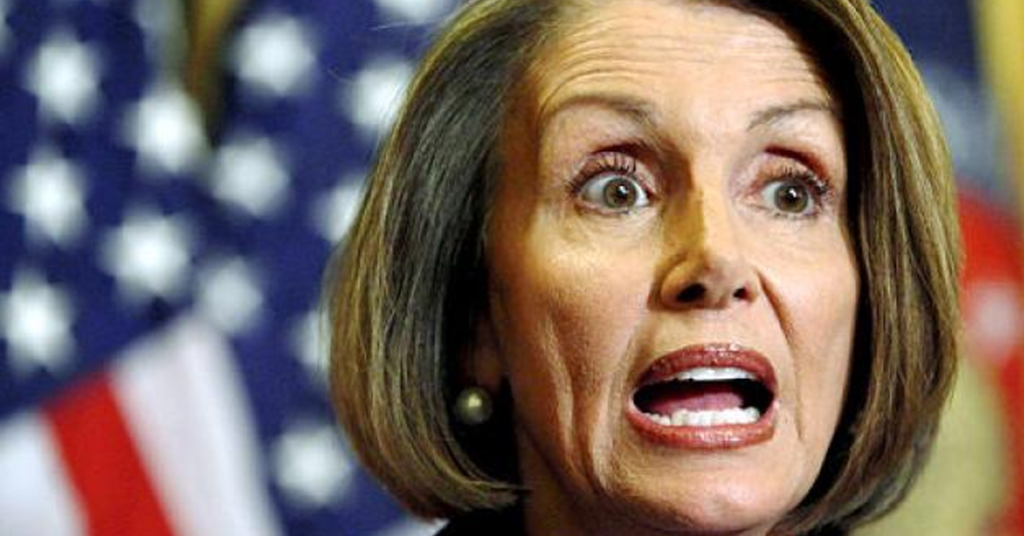
Minority Leader Nancy Pelosi faced a reckoning from fellow House Democrats on Wednesday as frustrated lawmakers tried to oust her from the leadership post she’s held for over a decade. The 76-year-old California Democrat, known as a master vote counter, was expected to beat back the challenge from Ohio Rep Tim Ryan as Democrats met behind closed doors. But she was forced to promise changes to the caucus to answer complaints from lawmakers fed up with being shut out of the upper ranks of leadership, especially in the wake of a devastating election that installed a GOP monopoly over Congress and the White House. A half-dozen Democrats were slated to deliver testimonials to Pelosi in nominating speeches, but the disenchantment was evident. “I think Tim Ryan would be a great leader. He’s a new generation and I think he would appeal to a lot of millennials and young people in this country,” Rep. Steve Lynch, D-Mass., said as he headed into the session. “He brings a certain excitement and also a bit of common sense from Youngstown, Ohio.” “Our base is working people and we’ve got to talk about that. We’ve got to tell working people in this country that we care about them,” Lynch said. Leadership elections were originally scheduled to be held before Thanksgiving but were delayed to give Democrats more time to discuss and process the election results and consider a path forward. Many are discouraged after losing the White House and making smaller than expected gains in both chambers of Congress. “I believe we must do more than simply paper over the cracks,” said Rep. Ruben Gallego of Arizona, one of a handful of House Democrats to endorse Ryan. “We can’t just say the right things – we must take concrete steps to move our party in the right direction.” The 76-year-old Pelosi has been promising some changes to assuage concerns in her caucus, including adding a member of the freshmen class to her leadership team. But her proposals do little to ensure new blood at the very top or change the seniority system that has key committees led by lawmakers in their 80s at a moment when the party needs to be defending President Barack Obama‘s health care law and other initiatives. Nonetheless Pelosi projected confidence heading into the vote. Known for her vote-counting skills, the Californian asserted she had support of two-thirds of Democrats locked up. “Leader Pelosi is honored to receive the overwhelming support of her colleagues,” said spokesman Drew Hammill. “That so many members are so enthusiastic and eager to take active roles in the caucus is music to her ears.” Other top leadership posts are uncontested, with Steny Hoyer of Maryland expected to stay in the No. 2 job of whip, and Jim Clyburn of South Carolina in the No. 3 position of assistant leader. The position of conference chairman is term-limited, and Xavier Becerra of California is expected to be replaced by Joe Crowley of New York. There is a contest for the position of conference vice chair between two California Democrats, Linda Sanchez and Barbara Lee. Either would become the first minority woman in leadership. On the eve of the House leadership elections, 85-year-old Rep. Sander Levin, the top Democrat on the House Ways and Means Committee, said he will not seek re-election to the panel post, clearing the way for a younger lawmaker to move into the spot on the powerful committee. Becerra and Rep. Richard Neal of Massachusetts told House Democrats they are interested in the position. Republicans are on track to hold at least 240 seats in the House next year. Democrats, who had high hopes of significant gains in the election, picked up just six seats on Election Day earlier this month and remain in the minority with 194 seats. Republished with permission of the Associated Press.
Joe Biden ‘not interested’ in running for Democratic Party chair
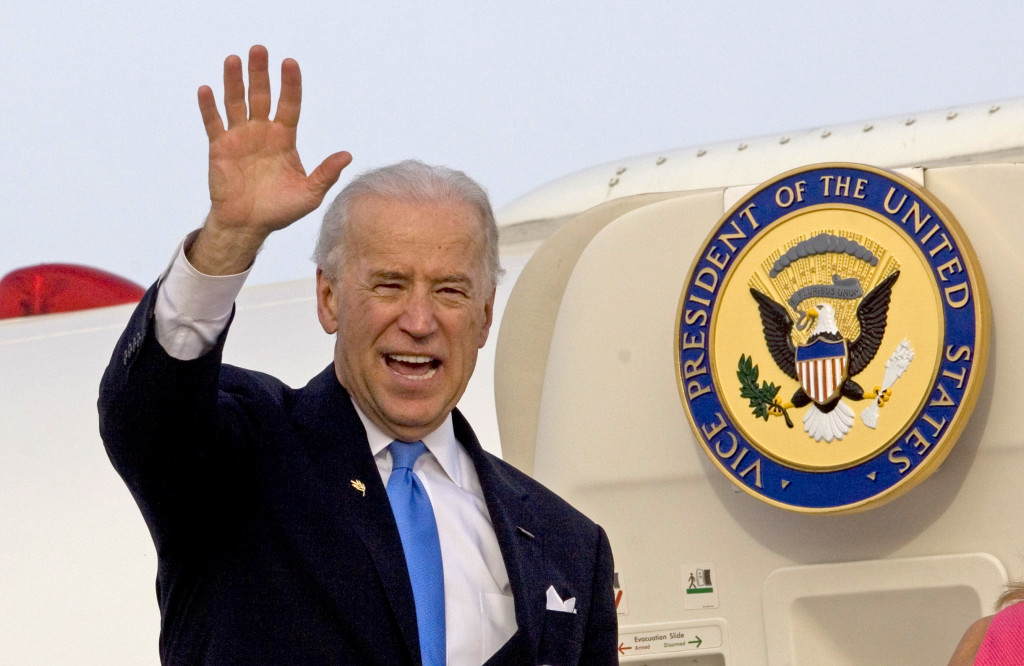
Vice President Joe Biden closed the door Tuesday on the possibility of leading the Democratic Party after leaving the White House next year. Biden’s name has been floated in recent days among Democratic insiders looking for someone with the stature and position to lead the party out its electoral abyss. Democrats urging him this year to run for the Democratic National Committee chairmanship had said his appeal to white, working-class voters might help the party refocus after losing badly among those voters to President-elect Donald Trump. “The vice president is not interested in being DNC chair, but he intends to remain deeply involved in helping shape the direction of the Democratic Party moving forward,” his spokeswoman, Kate Bedingfield, said. Largely leaderless other than outgoing President Barack Obama, the Democratic Party early next year will choose a new national chairman following devastating losses in the 2016 elections. Longtime Chairwoman Debbie Wasserman Schultz stepped down under pressure during the Democratic National Committee. Since then, interim Chairwoman Donna Brazile has led the party, also under pressure after stolen emails showed she’d communicated with Hillary Clinton‘s aides about potential questions to be asked in campaign forums. “Joe Biden is the one person who I think could bring the party together, the progressive wing of the party, the left and center, and start giving a cogent message to those working-class Democrats who abandoned us,” former DNC Chairman Ed Rendell told CNBC earlier Tuesday. Bowing out of the DNC race means Biden will likely cease to have a formal role in the party come January after serving more than four decades in elected office. He’s expected to remain a public voice and has discussed with universities the possibility of setting up a policy center or institute. He’s also said he’ll continue to work on the “moonshot” he launched after his son died to accelerate cancer research. Biden faced even louder calls last year to run for president, but ultimately declined. Republished with permission of the Associated Press.
Nancy Pelosi promises more influence for junior Democrats

Nancy Pelosi is responding to a challenge to her position as top House Democrat by proposing to give more influence to junior lawmakers atop congressional committees and within her leadership team. Pelosi, 76, has been the chamber’s Democratic leader since 2002. She is being challenged by Ohio Rep. Tim Ryan in the aftermath of elections that were disappointing for Democrats who expected Hillary Clinton to be elected president and their party to make sizable gains in the House. Pelosi appears to be addressing widespread unease among more junior lawmakers who say that opportunities to advance and influence the party’s course are lacking so long as the same senior Democrats remain in charge. Ryan says he is better able to appeal to Rust Belt and rural areas where Democrats used to perform better. Pelosi points to her successful leadership in the mid-2000s that led the party into the majority for four years. Pelosi’s core leadership team has been in place for a decade and octogenarians command the top Democratic posts of several powerful committees, including the Judiciary panel and the powerful Ways and Means Committee, which has sweeping jurisdiction over taxes, trade, health care and Social Security. Pelosi is the overwhelming favorite to defeat Ryan and hold onto her post as minority leader. But she’s responding to the unease among junior Democrats by proposing that less senior lawmakers be given the No. 2 spots on committees. She would also immediately create three leadership positions for Democrats who have served fewer than 10 years, and designate the No. 3 leadership post for a lawmaker who has served fewer than three terms. “Making this fight requires all hands on deck,” Pelosi wrote to fellow Democrats. Ryan, 43, had earlier issued similar proposals designed to give a greater role to more junior Democrats. And he says the party has to expand far beyond its coastal and urban strongholds. “I’m pulling the fire alarm because the house is burning down, and we better get our act together or we’re going to cease being a national party,” Ryan said Monday on the Fox Business Network. “We’re going to be a regional party that fails to get into the majority and fails to do things on behalf of those working class people that were the backbone of the Democratic Party for so long.” Republished with permission of the Associated Press.
Alabama Democratic Party offers Donald Trump congratulations, support

Tuesday night billionaire businessman Donald Trump swept the electoral map in a historic upset that left Democrats across the country shocked and the nation divided. But the Alabama Democratic Party is putting forth an effort to close the divide, offering the newly elected Trump their congratulations and support. “We congratulate the winners and offer our support as they attempt to unify our divided country,” said Nancy Worley, Chair of the Alabama Democratic Party. Worley continued, “we must all unify as a state and nation to guarantee that our children receive a world-class education in well-funded public schools. We must support our working men and women with job training and employment opportunities, higher pay, and affordable health care. We must protect our senior citizens ‘ retirement and Social Security, as we expand their options for long-term independent living.” Trump defeated his Democratic opponent Hillary Clinton — who would have been the country’s first woman President in its 240-year history — and succeeds Democratic Barack Obama, the first African-American President of the U.S. Clinton also congratulated Trump early Wednesday morning, shortly after the race was officially called in his favor. Later in the day, she delivered a somber concession speech where she told her supporters to have an open mind and give the future president a chance. “Last night, I congratulated Donald Trump and offered to work with him on behalf of our country. I hope that he will be a successful president for all Americans,” Clinton said. “Donald Trump is going to be our president. We owe him an open mind and a chance to lead.”

